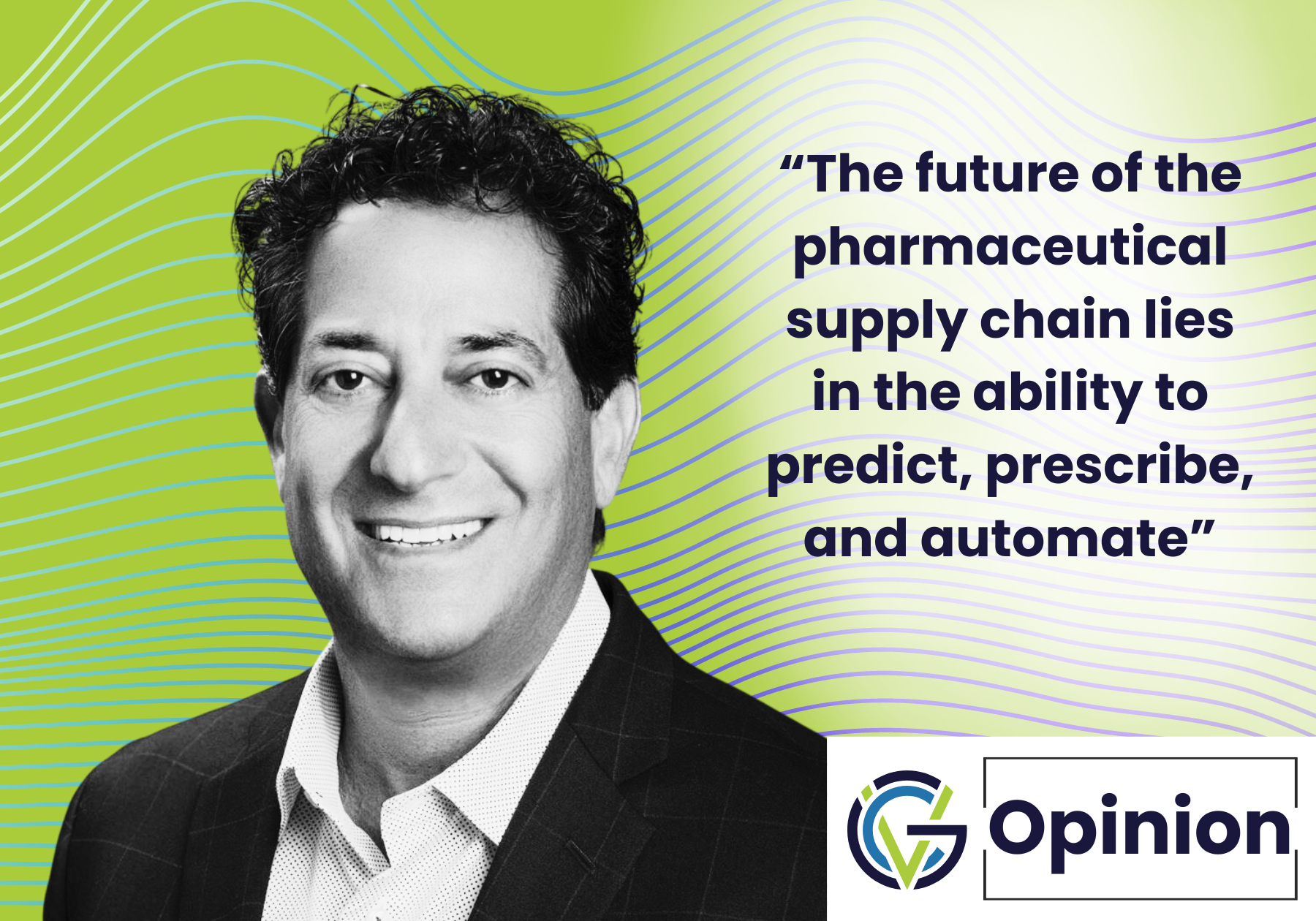The future of the pharmaceutical supply chain lies in the ability to predict, prescribe, and automate, says Joe Volpe, managing director of MSD Global Health Innovation Fund.

The pharmaceutical supply chain is an often overlooked, but critical part of the rapidly evolving landscape of global healthcare. Getting a drug from raw material to patient is a multifaceted journey from producers and vendors through to transportation companies, distribution centers and retailers.
This journey is fraught with challenges, from maintaining drug integrity during transit to navigating disruptions and standardizing operations across global networks. Temperature control for sensitive products, unpredictable disturbances, tier two visibility — knowing the suppliers to your direct suppliers — and siloed partner systems are just some of the complications.
There is potential, however, for technologies like artificial intelligence and the internet of things to solve these issues. Thoughtful — and above all collaborative — investment can unlock that potential.
Opportunity exists everywhere
According to Precedence Research, the supply chain management market was valued at $25.74bn in 2022. It’s expected to reach $72.1bn by 2032, a CAGR of 10.9% from 2023 to 2032.
Effective management of supply chains is a formidable challenge for pharmaceutical companies today. The industry needs to invest more to integrate digitization and be prepared for large-scale shifts in demand, new product types with complex requirements, and rising pressure from industry regulators.
Ultimately supply chain management plays a crucial role in improving the return on investment for businesses. By focusing on cost reduction, collaboration, technology adoption, and performance measurement, organizations can optimize their supply chain processes and achieve higher returns.
As an investor with the MSD Global Health Innovation Fund and partnering closely with the MSD supply chain business group and my fund team members, I’ve had a front-row seat to the complexities and challenges inherent in this market sector. Based on what we’ve all seen, we’re bullish about this sector. Innovative technologies, strategic collaborations, and digital transformation have the potential to produce a big shift in efficiency, resilience, and patient-centered care.
Working toward an autonomous future
Optimism for the pharmaceutical supply chain’s future is not unfounded. Technology can overcome current limitations, collaboration can solve complex challenges, and there is a critical need for a supply chain that prioritises patient safety and access above all else.
The leap forward for the pharmaceutical supply chain lies in harnessing digital technologies and investing in them. Artificial intelligence, the internet of things, and machine learning aren’t just buzzwords—they’re keys to unlocking a more agile, transparent, and efficient supply chain. There are immense opportunities for transformative solutions.
“The future of the pharmaceutical supply chain lies in the ability to predict, prescribe, and automate.”
At the core of the GHI Fund investment strategy is a vision: the transition from a linear, manual-dependent supply chain to a networked, digitised ecosystem capable of autonomous, real-time decision-making. The future of the pharmaceutical supply chain lies in the ability to predict, prescribe, and automate. This isn’t a distant dream, but a tangible goal I’m actively working towards through MSD business collaborations, strategic investments, and the building of synergies among GHI Fund portfolio companies.
MSD GHIF portfolio investments
The GHI Fund portfolio companies bring a unique capability to the table from enhancing end-to-end visibility to implementing temperature-controlled systems that ensure product integrity. Together they represent a robust approach to begin to overcome pharma and other industries’ most pressing issues.
TransVoyant, AeroSafe Global, TAG-N-TRAC, and CargoSense — companies the fund has invested in— are pioneers in this regard, each addressing unique aspects of the supply chain’s challenges.
Powered by proprietary AI, TransVoyant analyses supply chain, manufacturing, logistics, market, and risk data to continually uncover potential issues, root causes, and automate next steps for customers and their trading partners.
AeroSafe Global’s solutions ensure that temperature-sensitive medications withstand the rigors of transportation without compromising efficacy.
TAG-N-TRAC revolutionises product security, battling counterfeiting and tampering with smart, low-cost tagging and serialisation.
CargoSense introduces automation agents and oversight for supply chain planning by combining disparate data streams, paving the way towards a truly digital and integrated supply chain.
A call for collaborative innovation
To truly transform the supply chain, however, we will need everyone, from innovators and industry leaders to regulators and policymakers, to collaborate.
To take a step on this path, I led a GHI Fund hosted day-long session with our supply chain portfolio CEOs, industry luminaries and the team at the Global Health Innovation Fund to connect our companies and partners in this space. We wanted them to understand each other’s current and future business strategies, and connections to the pharmaceuticals industry.
The session also allowed the participants to meet with supply chain experts outside the pharmaceutical ecosystem. Many of the challenges presented, affect the other industries including manufacturing, mining, and technology.
The meeting was extremely successful and paved the way for greater partnership among the attendees and the industry luminaries. We plan to have more meetings like it in the future.
The journey towards this autonomous future is just beginning, and it’s evident that the convergence of venture capital and digital innovation holds the key to unleashing the complete potential of the pharmaceutical supply chain.
Our fund is poised to play a pivotal role in guiding the evolution of this supply chain towards a future characterized by resilience, efficiency, and an unyielding dedication to patient well-being. Ultimately, our aim is to catalyze the transformation of the pharmaceutical supply chain into a formidable, adaptable force within global healthcare delivery. If your supply chain faces similar challenges and you’re interested in collaborating, please feel free to connect with me on LinkedIn.
Joe Volpe is managing director of Merck Sharp Dohme Global Health Innovation Fund.








